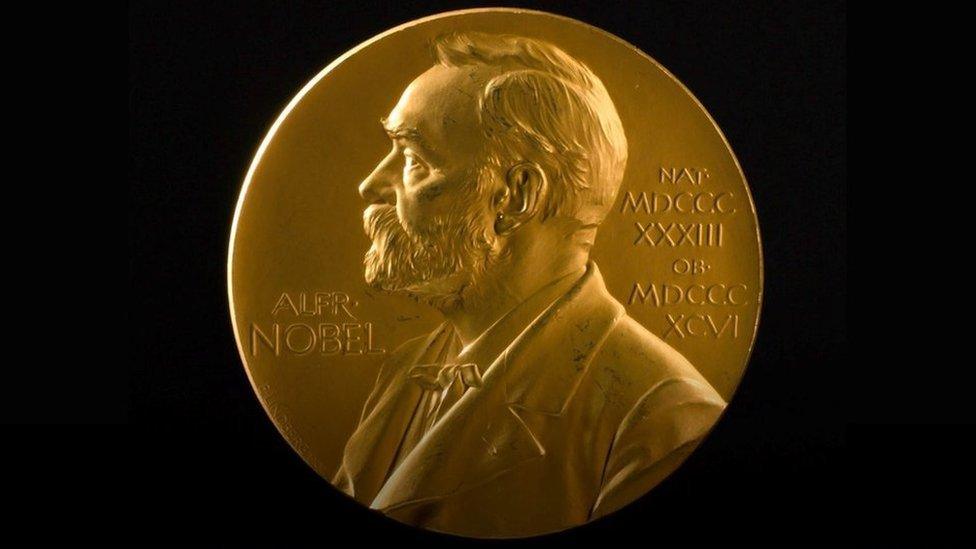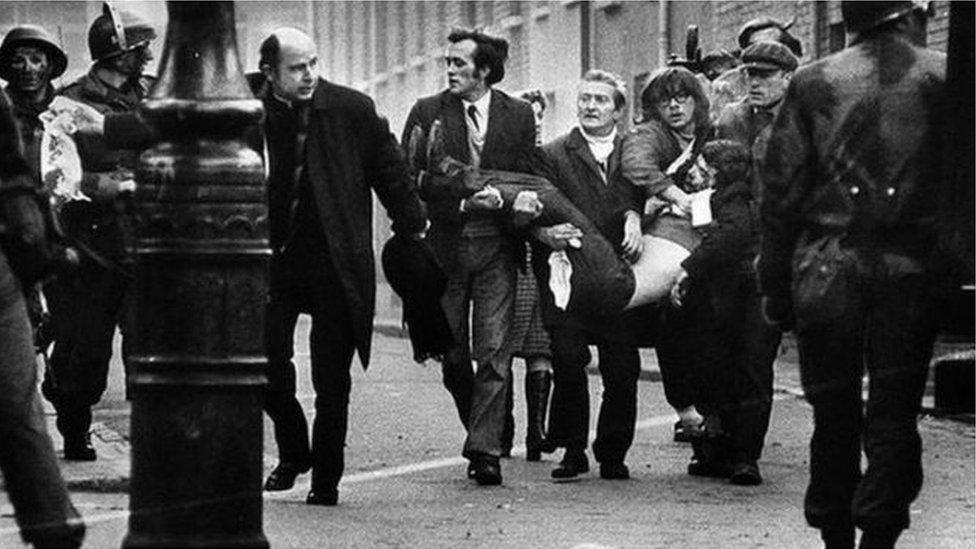Bloody Sunday remembrance service takes place for victims
- Published
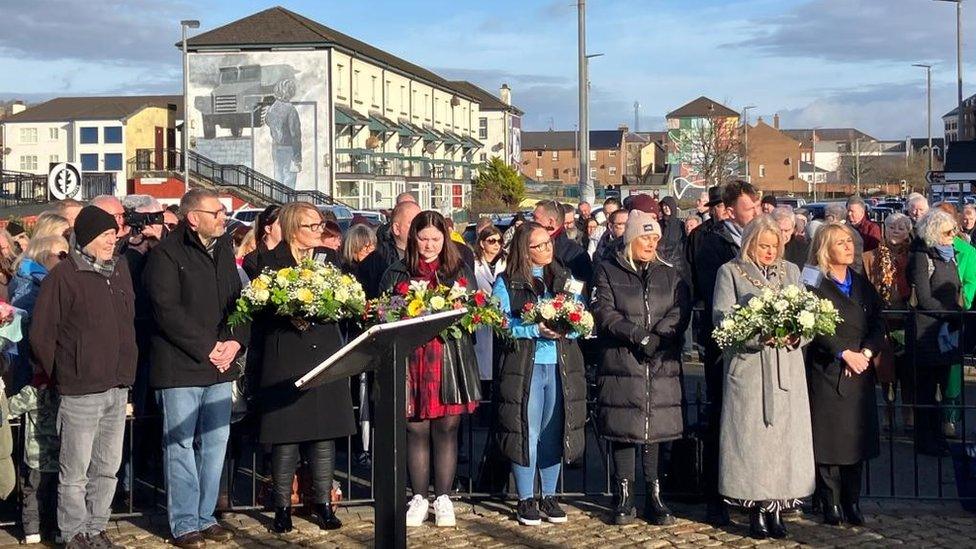
Sunday's remembrance service was followed by the unveiling of a plaque dedicated to the Derry corps of the Order of Malta
A remembrance service has taken place in Londonderry to commemorate those who were killed on Bloody Sunday.
The annual event was followed by the unveiling of a plaque dedicated to the Derry Corps of the Order of Malta, a voluntary ambulance organisation.
SDLP leader Colum Eastwood has said he would nominate the families of those killed for the Nobel Peace Prize.
Thirteen people were shot dead when soldiers opened fire on civil rights marchers on 30 January 1972.
It is widely regarded as one of the darkest days of the Troubles.
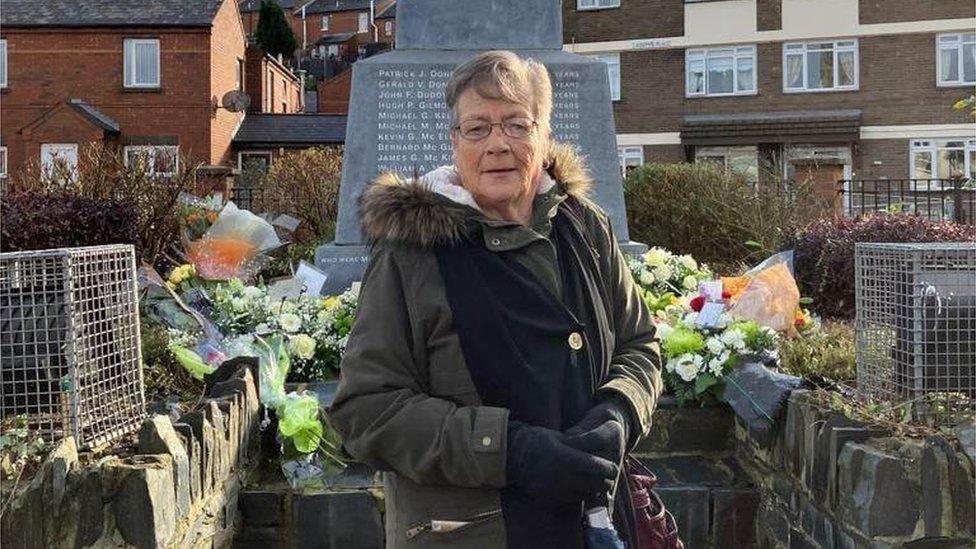
Kay Duddy lost her brother Jackie on Bloody Sunday
The service was held at the Rossville Street monument at 11:00 GMT, followed by a march later in the day.
Kay Duddy whose brother Jackie was killed on Bloody Sunday welcomed the nomination by Mr Eastwood.
"Everybody is just elated at the very idea. It seems such an honour to be even considered for anything like that," she said.
A week-long series of events will culminate on Monday with a minute's silence.
On Friday, Sinn Féin leader Mary Lou McDonald delivered the annual Bloody Sunday lecture, and on Tuesday a braille plaque was unveiled at Free Derry Corner.
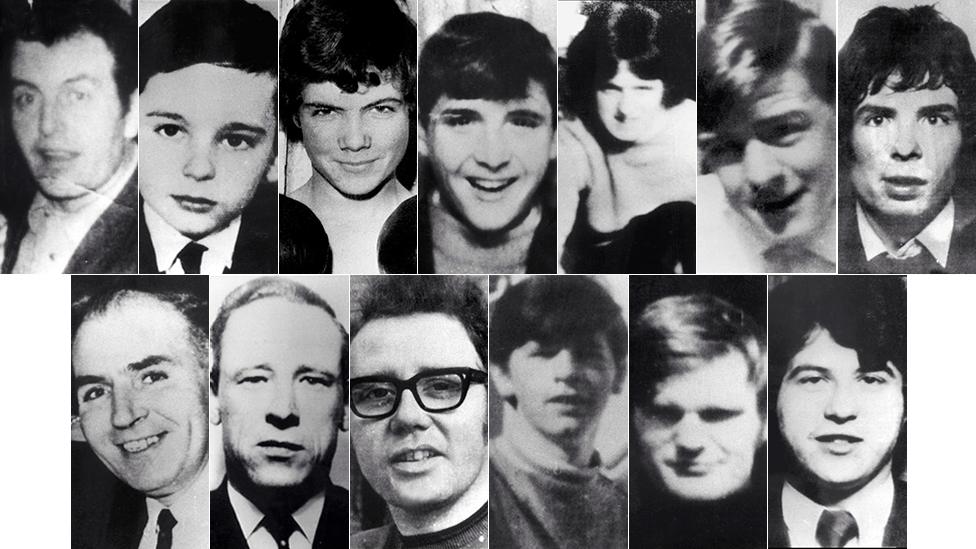
The victims, top row (l to r): Patrick Doherty, Gerald Donaghey, John (Jackie) Duddy, Hugh Gilmour, Michael Kelly, Michael McDaid and Kevin McElhinney. Bottom row : Bernard McGuigan, Gerard McKinney, William McKinney, William Nash, James Wray and John Young
The Nobel prizes are a series of annual awards given in the fields of physics, chemistry, medicine, literature, and peace.
They are awarded to people who have conferred the greatest benefit to humankind in the previous 12 months.
In 1998, the Nobel Prize for Peace was awarded to the SDLP's John Hume and David Trimble, the then leader of the Ulster Unionist Party, for their contribution to the Good Friday Agreement - the peace deal which ended the worst of Northern Ireland's Troubles.
Mr Eastwood said he would nominate the families for the prize because he could think of "no better tribute given their commitment to peace and reconciliation during their long fight for truth and justice".
He said the families had gained respect and admiration from across the world over their battle for truth and justice.
- Published8 October 2021
